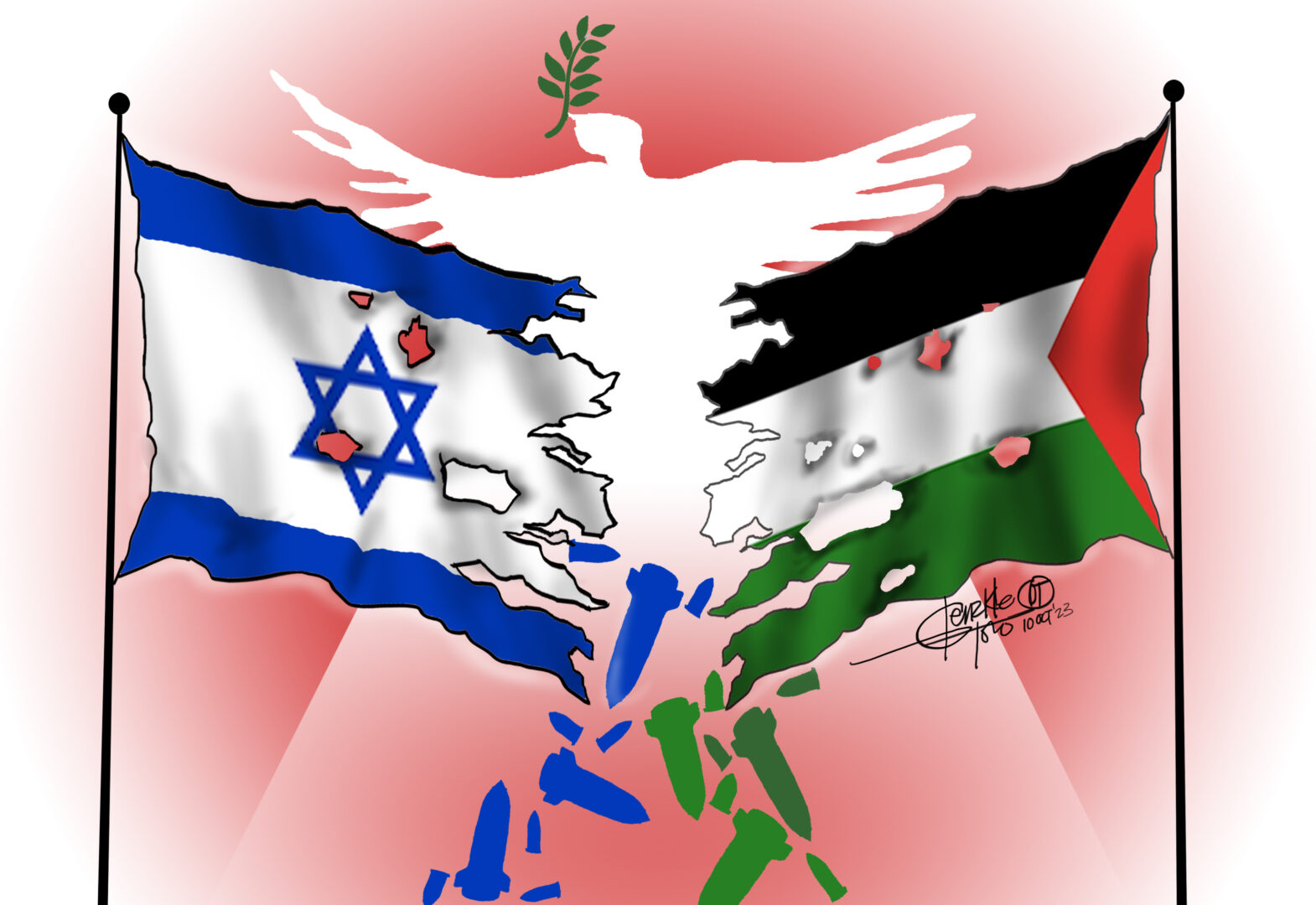A violent narrative with centuries of historical and theological significance, the Israel-Palestine conflict continues to captivate the world’s attention as the latest terrible chapter unfolds.
The new escalation, marked by an unprecedented ground attack and a barrage of rockets fired by Hamas from the Gaza Strip, as well as Israel’s equally deadly reaction, has thrown the region back into a cycle of violence, destruction, and terrible human misery.
If we are to grasp where the animosity is coming from between Israelis and Palestinians, we must go back to antiquity, to the time of Moses and the beginnings of Israeli claims to the country. It is a generational conflict, profoundly anchored in both Israeli and Palestinian historical and theological narratives.
According to the Hebrew Bible, Moses led the Israelites out of slavery in Egypt and into the Promised Land, Canaan, which currently includes Israel and Palestine, around the 13th century BCE. This ancient story is the cornerstone of the Jewish connection to the land.
The region has seen the rise and fall of civilizations over millennia, from King David’s United Kingdom of Israel to the Roman dominance, Arab invasions, Crusades, Ottoman dominion, and the British mandate. Each epoch brought layers of historical and cultural significance, further complicating the Israel-Palestine conflict.
While the conflict has its roots in the religious and historical claims of both Jews and Palestinians to the land of Israel, it is important to note that the present conflict has a more recent genesis.
In response to the Semitic persecution in Europe, the Zionist movement began in the nineteenth century, calling for the establishment of a Jewish homeland in the Land of Israel. The Balfour Declaration of 1917, followed by the mandate of the League of Nations, laid the groundwork for significant Jewish immigration to Palestine.
The partition plan devised by the United Nations in 1947 sought to establish separate Jewish and Arab nations in Palestine. While accepted by Jewish leaders, Arab governments and Palestinian Arabs opposed it.
The Arab-Israeli War that followed culminated in the foundation of the State of Israel and the displacement of hundreds of thousands of Palestinians, resulting in a refugee problem that continues to this day.
The following decades would see a string of battles, uprisings, and peace efforts, including the 1967 Six-Day War, the Camp David Accords, the First and Second Intifadas, and Israel’s 2005 pullout from Gaza. Each event left an indelible imprint on the conflict’s narrative, increasing tensions and grudges even further.
We are currently in the midst of another dangerous escalation. Since last Saturday, the Israeli-Hamas conflict has claimed the lives of hundreds of innocent civilians and resulted in the kidnapping of civilians, including foreign nationals, as a result of Palestinian rocket launches and airstrikes by Israel.
The cost on both sides has been incalculable, with families torn apart and towns decimated.
In this dark hour, we must call on the international community, regional stakeholders, and Israeli and Palestinian leaders to work together to break the cycle of violence. The historical complaints are significant, but the misery inflicted on innocent individuals is indescribable.
The United Nations, which was established in the aftermath of World War 2 for the purpose of preventing future hostilities, must rise to the task. Here, we must consider if the United Nations is still relevant, given its inability to deliver sustainable peace to conflict-torn countries.
There is no losing faith in the UN, however, as we must accept its limitations and work for reforms that will allow it to accomplish its role more effectively. The international community’s commitment to diplomacy, conflict resolution, and humanitarian aid must be reaffirmed.
Amid the depressing headlines, we must also acknowledge the moments of kindness and solidarity that cross boundaries. People all across the world have banded together in support of peace and justice, calling for an end to the suffering of both Israelis and Palestinians.
As we reflect on the millennia of history that have led us to this point, it is important to realize that history is not static. Individuals, nations, and leaders’ decisions and actions shape it. The pursuit of peace, no matter how unattainable, must remain our guiding star.
Although the Israel-Palestine conflict has ancient roots, it is our obligation to shape its destiny. It is time for the world to band together in pursuit of a just and enduring peace that respects the dignity and aspirations of all who call this place home.
